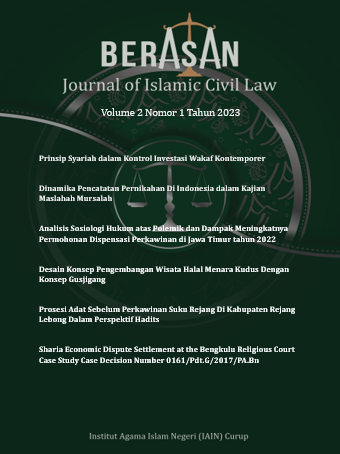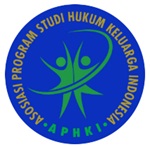Desain Konsep Pengembangan Wisata Halal Menara Kudus Dengan Konsep Gusjigang
DOI:
https://doi.org/10.29240/berasan.v2i1.5977Keywords:
Halal Tourism Development, Kudus Tower, Gusjigang Concept.Abstract
The purpose of this study was to determine the development of halal tourism in Kudus Regency and to determine the development of the Kudus Tower with the Gusjigang concept. This research is a qualitative research using descriptive method, the data used are primary data and secondary data, with data collection, interviews, observation, and documentation. The results of this study can be concluded that halal tourism is a place of recreation to let go of busyness that does not deviate from the teachings of Islamic law. In the development of the Kudus Tower tourism, it has become a tourist spot that is visited by many tourists in various cities in Indonesia, becoming an attraction and interest among the public with the beauty of its buildings. The Menara Kudus Mosque is one of the witnesses to the development of the Islamic religion brought by Sunan Kudus. The concept of Gusjigang is a philosophy that is embedded in the personality of the saint. The Gusjigang philosophy is one that has noble values and was taught by the ancestors of Sunan Kudus. For this reason, the Kudus community needs to instill the values of religious education to pass on to the next generation which can be used as a guide by the community.
Downloads
Downloads
Published
Issue
Section
Citation Check
License
Authors who publish with Berasan: Journal of Islamic Civil Law agree to the following terms:
- Authors retain copyright and grant the journal right of first publication with the work simultaneously licensed under a Creative Commons Attribution-NonCommercial-ShareAlike 4.0 International License (CC BY-NC-SA 4.0) that allows others to share the work with an acknowledgment of the work's authorship and initial publication in this journal.
- Authors are able to enter into separate, additional contractual arrangements for the non-exclusive distribution of the journal's published version of the work (e.g., post it to an institutional repository or publish it in a book), with an acknowledgment of its initial publication in this journal.
- Authors are permitted and encouraged to post their work online (e.g., in institutional repositories or on their website) prior to and during the submission process, as it can lead to productive exchanges, as well as earlier and greater citation of published work (See The Effect of Open Access).









